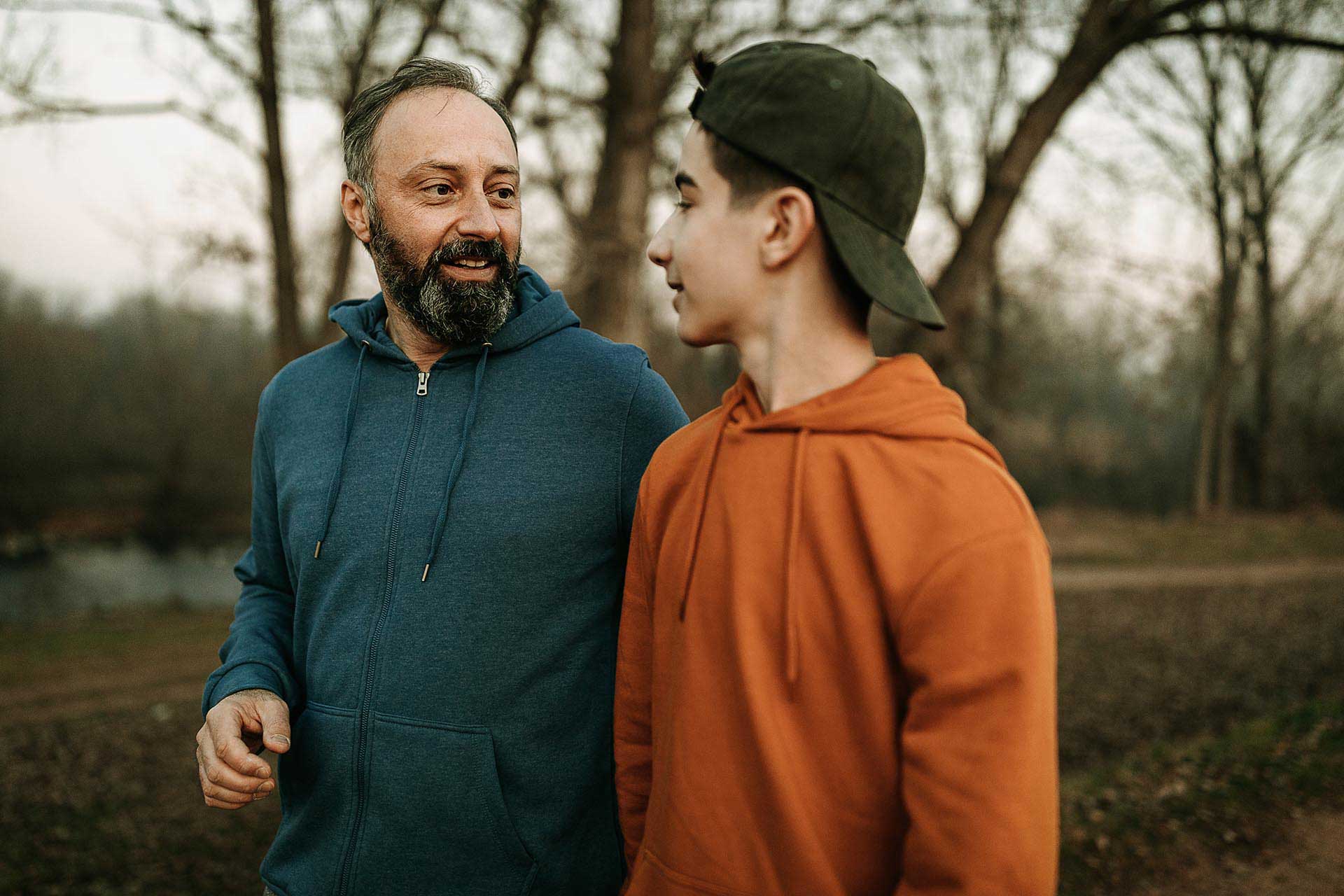Talking to boys about sexism and respecting women
We all want our kids to be respectful of others. Whatever your beliefs at home, we can agree we’d like our kids to be kind, empathetic and respectful when they grow up. Seems straight forward enough? They’re good kids. Then why does this feel like a monster task at times?
One question in particular we sometimes hear from parents is, ‘How do I raise my boys to be respectful of girls and women?’ Although a lot has changes in the last two decades, young people are still receiving some damaging messaging on the roles boys and girls are expected to play gender-wise and how women should be treated due to things like pornography, some television and pop culture, music videos, and even just from what other kids do and say in the playground. Parents are never going to be able to counteract every message their child takes in from the world around them. All we can do is try to help guide them with our own values and encourage them to challenge some of these harmful (and limiting) messages by having lots of conversations. This one in particular is a big question, and we certainly don’t have all the answers – but we do have a few tips to guide you.
Age 5-12
- Lead by example. If someone you know makes a sexist comment or joke in front of your child say something if you feel comfortable about doing so. Or if you don’t at the time, you might like to have a conversation with your child about it later and let them know why you didn’t like what was said. We all like to let off steam about other people from time to time, but if possible, watch language to make sure we’re not saying something disrespectful about that person – especially in terms of gender.
- Let them play however they like. Why should trucks be ‘boy toys’ and dolls be ‘girl toys’? You might like to ask your son if they’d like some dolls or dress-up clothes next time it’s their birthday or Christmas. If they say no because it’s a ‘girls toy’, ask them why they think a toy is only specifically for boys or girls – this will help them understand how silly-sounding the argument is.
You could say, ‘What do you mean by dolls being a ‘girls toy’? Do you think particular toys are just for boys or just for girls? What if a boy liked playing with dolls? What if a girl liked playing with trucks? I know of some boys who like playing with dolls. Is there anything wrong with that?’
- Talk to them about what sexism is. This is a conversation that can start young with, ‘Sometimes some people will treat others differently or badly, or view them as less than other people because of their gender, this isn’t okay, because people of any gender deserve to be treated equally and with always with respect’ and the discussion grows from there, adding more as they get older. If you feel comfortable, you could even mention examples of sexism you’ve seen yourself or occasions you’ve noticed in your own life. The easiest way to have this conversation is to talk about what you see in the media, like when watching television or an advertisement. Ask your child what they think of what you’re watching, and you can offer your own opinions too.
You might say, ‘You know when we were watching that movie last night, and the main character made that joke about the girl? I was wondering what you thought of that. I didn’t think it was very funny; it seemed disrespectful to me. But I wanted to know what you thought.’
- Invite them to empathise. This can just mean encouraging your son to read books, watch movies and play games with a female protagonist or from the perspective of women. This helps to place them in someone else’s shoes.
Age 12+
All the above-mentioned points can also be actions and conversations that continue once they reach adolescence (well, maybe not the one about toys). You might just like to explore things a little more in-depth. Once kids become teenagers, there are a few more things that become important to talk about (and talk really is the operative word here). But the good news is, the more you talk, the more they’ll hopefully be thinking about these ideas when they’re out in the world or consuming media. You don’t need to get it right every time or talk about everything all at once. It can be as simple as pointing out something in a film or on the news, asking for their opinion and offering your own insights. It’s also important to know that gender stereotypes can be limiting for everyone.
- Talk about the portrayal of women in pornography. This is a huge topic that deserves its own article, but just to touch on it, one of the worst places that young boys can get ideas about men and women is through mainstream pornography. Of course, not all young people watch pornography, but sadly, statistically many are likely to at least be shown it by friends if not watching regularly themselves. The good thing is, that you can have a vital influence over how much they take on board from pornography. Talking with your child about what they might have seen or may see can help to put things into context and make them more critically aware of what they’re watching. This includes the violence done towards women, how women are portrayed as always ‘up for anything’, how men never ask women for consent before doing something to them, how the sex isn’t centred around pleasure for women, and the unrealistic body types presented in porn. This article and this article tackle the topic in greater depth if you want a bit more help with this one.
- Talk about issues affecting women in the news. Have they heard of #MeToo? What do they think about it? What do they think about Donald Trump’s comments towards and about women? Talking about what’s going on in the world invites them to consider how sexism can function in the world around them while involving them in the conversation encourages them to critically think about the issues and work out what they think. Many children have a natural sense of justice and developing a strong sense of social justice is something many parents want for their children.
- Talk about consent (a lot). Yeah, this is a big one that could also be its own article. We address talking to teens about consent generally here, but there are specific conversations about consent that need to be had with young people, regardless of gender. Talk about intimacy, and how it’s still important to have respect in a sexual relationship even if there isn’t commitment. Talk about how, because of sexual violence (and other reasons), girls can sometimes feel like they have to say ‘yes’ to boys even if they don’t want to – so young people must let any partners know that they’re happy to hear a ‘no’. Talk about how important it is that they respect a ‘no’ the first time it’s said, and how if there’s any ambiguity, then that should be taken as a ‘no’ as well. Talk, talk, and talk some more.
- Talk about how gender stereotypes negatively affect men as well as women. We talk about this one here as well. Boys must understand that gender stereotypes can be harmful to them as well, from stifling their emotions to discouraging certain professions to dictating the way they should dress. By being aware of the messages they might be receiving from the world around them, they can have more confidence to decide what to take on and what they choose to leave.










